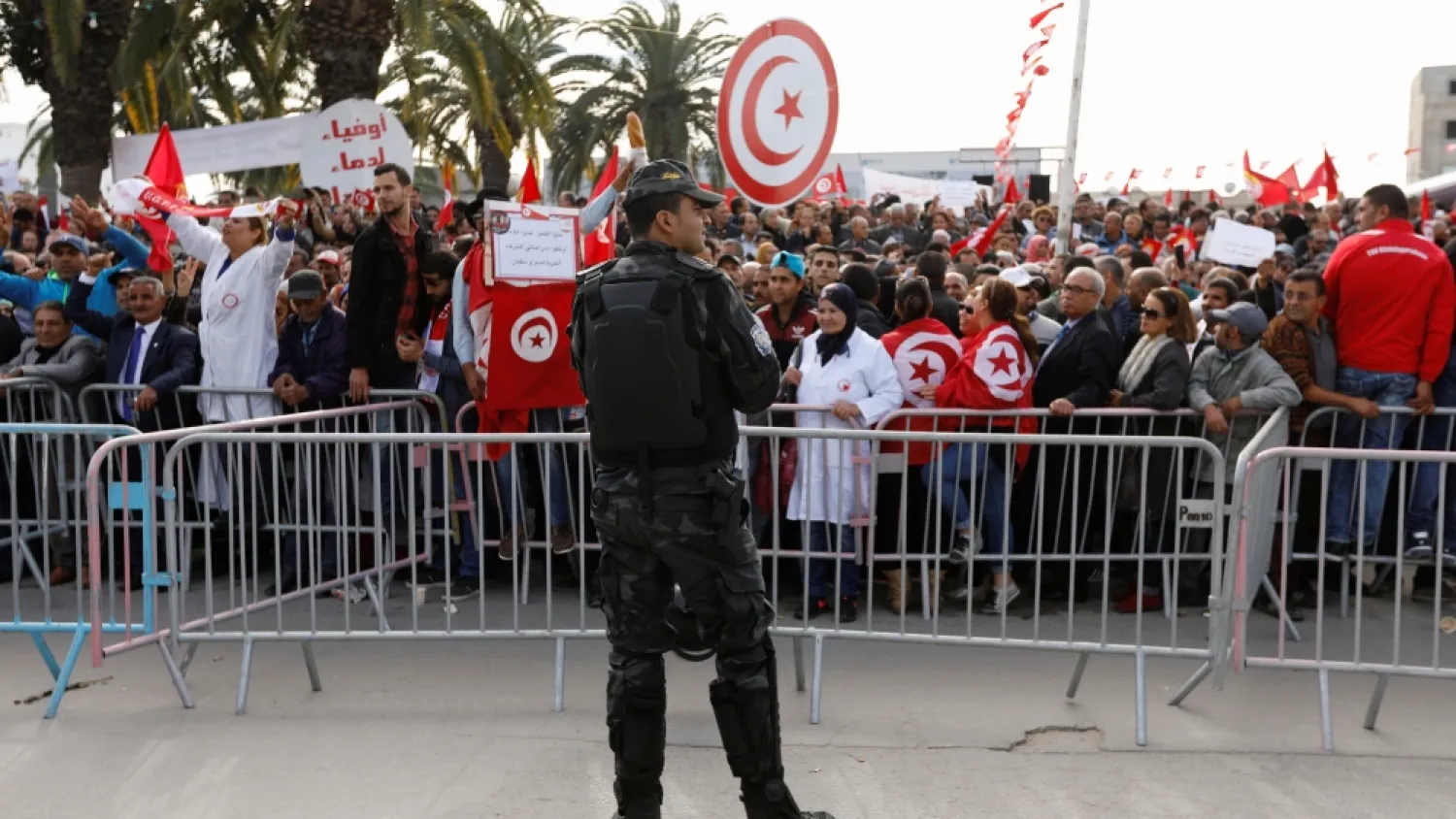The Tunisian General Labor Union (UGTT) called on Saturday for a national strike in January to demand a wage hike.
The call was made two days after some 650,000 public sector workers went on strike and thousands joined protests across Tunisia over the government’s refusal to raise wages.
Prime Minister Youssef Chahed said earlier on Saturday that any agreement must take into account the public finances.
"There is a real problem in the decline in purchasing power and high inflation and the decline of public services. These will be our priorities in the next period," Chahed told parliament.
The government had said it does not have the money to pay for the increases strikers want, worth about 2 billion Tunisian dinars ($690 million) in total.
Under pressure from the International Monetary Fund (IMF) and a deepening political crisis, Chahed is battling to cut the budget deficit to about 4.9 percent of GDP this year and 3.9 percent in 2019 from 6.2 percent last year.
His unpopular reforms include cuts to the public sector, state companies and fuel subsidies.
Raising the pressure on the government the UGTT Union called for a nationwide strike that includes public employees and state companies on January 17.
The union is demanding 673,000 state employees receive salary bumps equal to those granted this year to public companies, which range from 15 to 30 euros ($17-34) a month.
Civil servants represent a sixth of Tunisia's workforce and Thursday's strike, the widest of its kind since 2013, marked their first walkout over wages in decades, according to the UGTT.
Donors keeping Tunisia afloat have called on the government to control civil service salaries to avoid pushing up the public deficit.
The North African country is seen as having had a relatively smooth democratic transition since the January 14, 2011 toppling of President Zine El Abidine Ben Ali after 23 years in power.
At the same time price hikes, fueled in particular by the fall of the Tunisian dinar, combined with tax increases and stubborn unemployment have spurred social discontent that escalated into riots across several cities in January.
In 2016, the IMF granted the North African country a 2.4-billion-euro loan over the span of four years in exchange for a promise to carry out economic reforms.
In recent months, political life in Tunisia has been paralyzed by power struggles ahead of presidential elections set for 2019.









